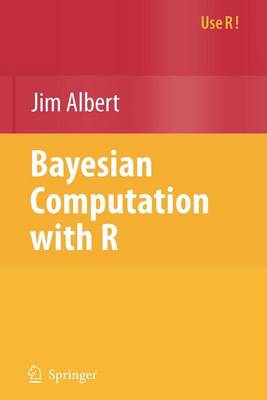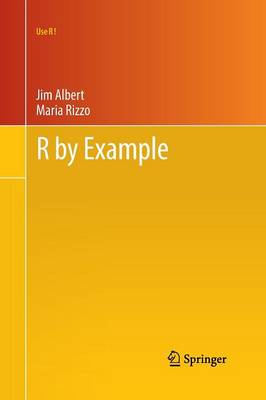Use R!
2 total works
Algorithms written in R are used to develop Bayesian tests and assess Bayesian models by use of the posterior predictive distribution. The use of R to interface with WinBUGS, a popular MCMC computing language, is described with several illustrative examples. This book is a suitable companion book for an introductory course on Bayesian methods and is valuable to the statistical practitioner who wishes to learn more about the R language and Bayesian methodology. The LearnBayes package, written by the author and available from the CRAN website, contains all of the R functions described in the book. The second edition contains several new topics such as the use of mixtures of conjugate priors and the use of Zellner's g priors to choose between models in linear regression. There are more illustrations of the construction of informative prior distributions, such as the use of conditional means priors and multivariate normal priors in binary regressions. The new edition contains changes in the R code illustrations according to the latest edition of the LearnBayes package.
R by Example is an example-based introduction to the statistical computing environment that does not assume any previous familiarity with R or other software packages. R functions are presented in the context of interesting applications with real data.
The purpose of this book is to illustrate a range of statistical and probability computations using R for people who are learning, teaching, or using statistics. Specifically, this book is written for users who have covered at least the equivalent of (or are currently studying) undergraduate level calculus-based courses in statistics. These users are learning or applying exploratory and inferential methods for analyzing data and this book is intended to be a useful resource for learning how to implement these procedures in R.

